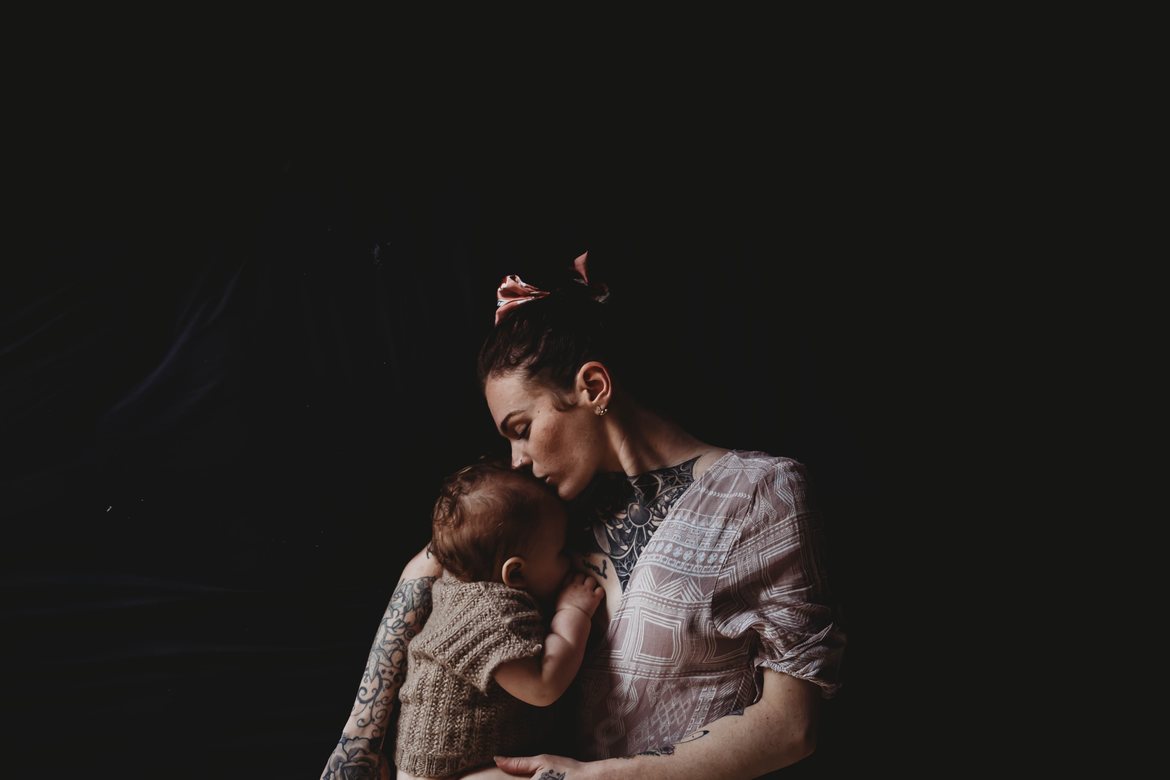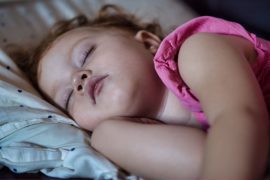By Tracy Cassels
We have a cultural obsession with infant sleep. It is not healthy and it is not reasonable, but we have it. It has led to the proliferation of sleep training and parents who are terrified they have broken babies or are horrid parents because their babies wake and nurse throughout the night. If you have an orchid child to boot, then you’re probably even more down on yourself because they won’t leave your side.
There’s lots that’s wrong with this obsession, but one of the worst side effects is how we have thrown breastfeeding under the bus in favour of sleep. We:
- Tell families not to nurse to sleep because it will create bad habits
- Recommend formula top-ups because it might help baby sleep more
- Suggest that babies shouldn’t be nursing overnight past a certain age
- Recommend spacing feeds further apart to try and keep babies from waking for milk
It’s not just from other parents either, but breastfeeding has become a central target in “behavioural interventions” on sleep. Controlled crying inherently puts breastfeeding at risk, but it’s not considered as such because most people don’t have the awareness of how crucial those night feeds are, but others actually actively look to reduce nursing as a means to improve sleep. For example, James-Roberts and colleagues[1] created an intervention for the first three months to improve sleep and infant crying and guess what it involved? That’s right, focal feeds, stretching intervals of feeds, and minimising contact at night (impossible when nursing on demand), all things pertaining to breastfeeding. More recently, there has been speculation that the early introduction of solids may help infants sleep an extra 16.6 minutes a night, even though the WHO and various worldwide health agencies all recommend exclusive breastfeeding for 6 months[2].
Controlled crying inherently puts breastfeeding at risk, but it’s not considered as such because most people don’t have the awareness of how crucial those night feeds are, but others actually actively look to reduce nursing as a means to improve sleep.
Why Should We Care?
Some people would question why we should care if people are targeting feeding in order to improve sleep, but there are good reasons we should be highly skeptical of any such approach. First, let’s acknowledge that breastfeeding and bedsharing – breastsleeping – is the evolutionary norm for the humans species[3], which means that outside of anything else we understand, there is likely good reason.
“Independent of breastsleeping, breastfeeding itself has been linked with dramatic declines in SIDS rates, with one meta-analysis finding that exclusive breastfeeding was associated with a reduction in SIDS risk of 73%.”
Dr. James McKenna has proposed that this combination helps to reduce Sudden Infant Death Syndrome[4] through keeping infants from falling into deep sleep for extended periods from which they may not recover. This is not without merit, as one of the findings with SIDS is that infants are at high risk on the first day and week of daycare and this is thought to be due to the stress of the change which results in deeper sleep at naptime[5][6].
Independent of breastsleeping, breastfeeding itself has been linked with dramatic declines in SIDS rates, with one meta-analysis finding that exclusive breastfeeding was associated with a reduction in SIDS risk of 73% (with a confidence interval of 69% to 76%)[7]. Although overall SIDS risk is low, this is a rather dramatic effect, and practices that reduce this effectiveness should be treated with caution.
Then of course, there is the personal reason: If a mother wants to breastfeed, she needs to know that sleep interventions, or even just our focus on sleep, is something that may hinder that for her. We talk a lot about women making their own choices, but most women I know are unaware what the effect is of sleeping changes on breastfeeding. As Dr. Helen Ball has demonstrated time and again, how families sleep and what expectations they have for sleep can have effects on breastfeeding success and duration or elements associated with these outcomes[8][9][10]. Thus a mother with a desire to breastfeed needs to be made aware of the relationship between breastfeeding and infant sleep and know that it’s not a “bad” thing, but rather a part of our evolutionary history.
Does Breastfeeding Impact Sleep?
The short answer: yes. Or rather, they are related, but not always in the ways that you might expect.
We’ll start with the research that most people cite in favour of having to put an end to all this nursing if people are going to get some sleep: wakings. There is evidence that mothers who breastfeed have babies who wake more frequently, on average, than those who do not breastfeed. For example, one study from Australia found that breastfeeding infants were 66% more likely to wake at night than their peers and 72% more likely to struggle to sleep alone[11]. (Luckily these researchers didn’t blame breastfeeding but rather suggested that there must be an evolutionary reason we need to explore and that low breastfeeding rates in many Western nations are likely linked to sleep expectations for infants.)
Studies by Dr. James McKenna and colleagues finding infants who sleep close to their mother at night are 2 to 3 times more likely to breastfeed than when separated from her.
This link to night wakings shouldn’t be surprising given that infants’ stomachs are so tiny and breastmilk is so readily absorbed that they get hungry and thus nurse more[12]. Sleeping closer to the infant also promotes breastfeeding with studies by Dr. James McKenna and colleagues finding infants who sleep close to their mother at night are 2 to 3 times more likely to breastfeed than when separated from her[13][14]. This is relevant to the discussion at hand insofar as most behavioural interventions require separation of mother and child, which we have empirically seen impacts breastfeeding.
One issue that often comes up is that the link between breastfeeding and night wakings is not just found in groups of infants, but toddlers as well[15]. Some suggest night weaning as a means to get more sleep at this age as well and of course there are more complex issues at hand for some families, but by and large we should always remember that toddlers are not grown-ups. Nursing is not something that ends in infancy from an evolutionary perspective, but rather something that typically goes on for years.
What may be helpful to know is that the research on the links between breastfeeding and waking in older infants and toddlers is less clear. One study found no impact of breastfeeding on waking in a sample of 6- to 12-month-old infants[16], suggesting breastfeeding ceases to have an impact once solids are introduced and that infants wake (as most did) for many other reasons. Another larger-scale study found that breastfeeding at 6 months did impact wakings at 12 months, by 2 and 3 years, there was no relationship[17], though as breastfeeding was not assessed at these later time points, it’s difficult to ascertain the exact effect.
Regardless, toddlers nursing at night should still be considered the evolutionary norm by which we compare other behaviours, including night weaning. As far as I know, there is little research on any impacts to earlier-than-desired full weaning with night weaning so I cannot make any claim as to how that may impact the breastfeeding relationship.
“Breast milk is one of the ways in which babies develop this rhythm as the mother’s body passes on hormones at the levels she has to help the baby learn the difference between night and day.”












A great article and such important information to share.